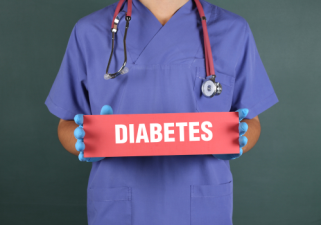Q&A with Karl S. Schumann, R. PH. 7/24/2015
Q: Diabetes continues to be one of the largest health challenges in the United States. What can we do as a community to have a larger impact on the patient and their disease?
A: The local community pharmacy is probably the most frequented healthcare portal visited by customers with diabetes. The opportunity for the pharmacy personnel to interact with these patients via compliance and persistency programs, (adherence), is compelling and is reported in the literature to be a tested method that improves their health status, (outcomes) and their disease state.
Q: The cost of health care is 8 times greater for a patient with diabetes compared to a healthy patient. What can we do at retail to minimize these costs?
A: As mentioned, the economic burden on customers with diabetes is enormous. These healthcare costs are not only associated with their drug regimens but also ancillary healthcare spend. Promotional sales programs targeting ancillary spend is one method to help manage their costs.
Q: What can we do as a health care community to prevent patients from entering donut hole?
A: CMS reports that Medicare beneficiaries with Diabetes enter the Part D Coverage Gap, aka “Donut Hole” within the eighth month of the year. Enhanced MTM (medication therapy review), including appropriate drug product selection, i.e., preferred generic and brands including less costly injection devices. In addition, face – to - face interactions, when used as an educational vehicle can help the customer with diabetes better manage their disease. Just maybe these programs result in delaying that “Donut Hole” penalty.
Q: Do interventions at the retail level impact quality of life for the diabetic patient?
A: Absolutely! We are all familiar with the Asheville Project from 2003 and how that has been a catalyst for retail pharmacy involvement with direct interventions of patients with diabetes resulting in proven positive health outcomes. Twelve years later, a published meta-analysis showed that diabetes prevention in a community pharmacy setting can be effective. The study evaluated the feasibility and effectiveness of GLICEMIA, a diabetes prevention program implemented in the community pharmacies. Results not only showed that community based interventions were effective but also helped to reduce the risk of T2D. (Benefits of a Community Pharmacy-based Intervention Program for People at Risk for T2D; Type 2 Diabetes; 778; April 2104)
Q: Does early intervention payoff for the retailer and what is the sales opportunity?
A: To attract and retain customers with Diabetes is very attractive to the community pharmacy. Unfortunately, due to their disease state, their healthcare spend is significant. Providing programs and interventions that target the diabetes patient will have a positive impact on their healthcare by improving their health status. Aligning sales and marketing programs, featuring the ancillary healthcare products for your customers with diabetes, not only helps economically with patients but also provides an avenue of additional revenue to the community pharmacy.


Karl S. Schumann, R.Ph., is Principal for Pha?maCon, LLC a reimbursement company in the managed markets environment. His primary accountability is to provide consultant services to the pharmaceutical, medical device and the third party payors in the area of pricing, reimbursement and contracting. Prior to his current position, from 2003 to 2013 Mr. Schumann was Director of Contracting, Reimbursement and Pricing for Becton Dickinson and Company, a global medical technology organization. In hi